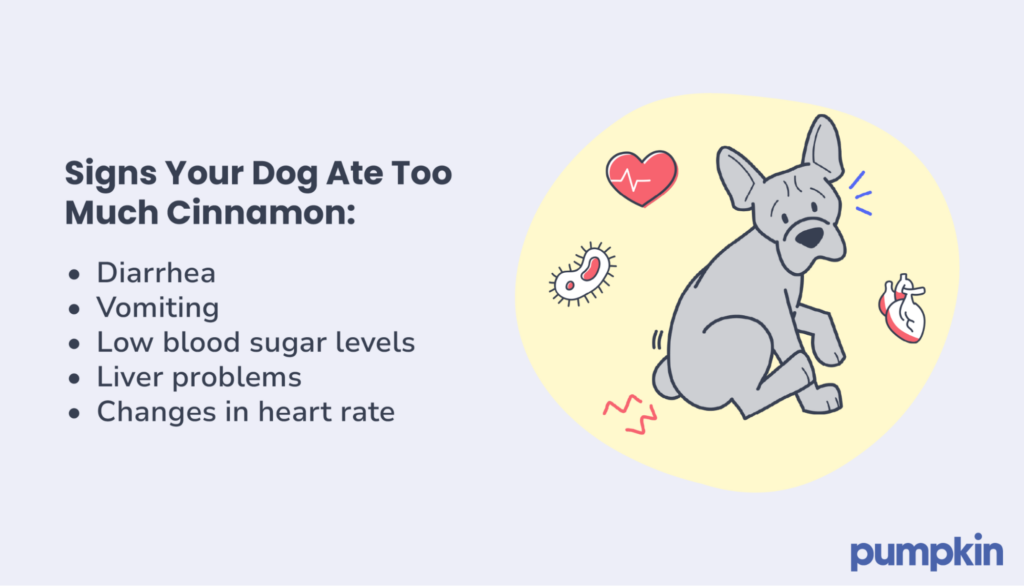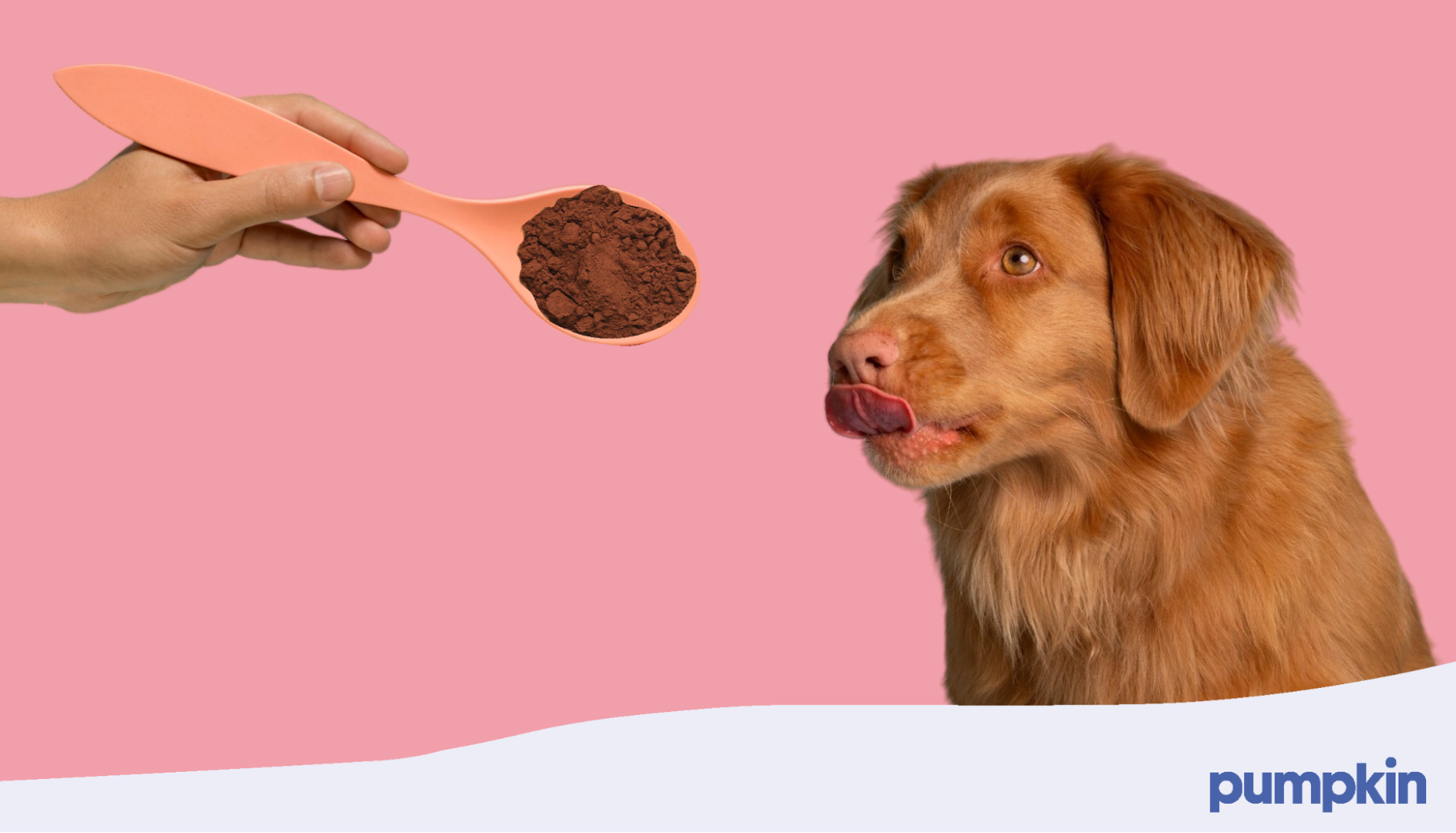- Feb 10, 2025
- 5 min read
Key Points
In small amounts, cinnamon is safe for dogs, but it’s not necessary for their diet.
Cinnamon has anti-inflammatory and antibacterial properties that may be beneficial to dogs.
Overconsumption of cinnamon can lead to digestive upset and low blood sugar in dogs.
From cinnamon rolls to cinnamon snap cookies and tasty iced chai lattes, cinnamon enhances more than a few of our favorite flavors. But can dogs have cinnamon? And what about our favorite cinnamon desserts?
Dogs can eat cinnamon, and it may even provide your pup with some health benefits when served in moderation. However, most foods that include cinnamon are not safe for your pooch, which makes this a complicated spice to share.
Nutritional value of cinnamon for dogs
Cinnamon is a spice that comes from the inner bark of a species of tree called Cinnamomum. The dried inner tree bark is brown in color, and it has a distinct and fragrant aroma and a warm, sweet flavor.
Cinnamon is naturally sugar-free and fat-free. One teaspoon contains:
6.4 calories
2.1 grams of carbohydrates
1.4 grams of fiber
0.1 g of protein
Cinnamon also contains nutrients such as:
Calcium
Iron
Magnesium
Vitamin C
Vitamin A
Potassium
Sodium
Cholesterol
This is the nutritional profile of Ceylon, or “true” cinnamon, which is extracted from the Cinnamomum trees. But there are other types of cinnamon cultivated from different tree species, like the Chinese Cassia (Cinnamomum cassia). Though closely related, they will have slightly different nutritional value.
What type of cinnamon is safe for dogs?
Before feeding your dog cinnamon, consider whether it's “true” Ceylon cinnamon or Cassia cinnamon.
Cassia cinnamon comes from Indonesia and China. It has a rough texture, is dark brown, and has a strong taste. It's cheap and the type most commonly found in grocery stores. But it has a lot of coumarin, which can be harmful to dogs in high amounts.
Ceylon cinnamon is harder to find and more expensive. It comes from Sri Lanka, is light brown, and tastes sweeter. It has less coumarin than Cassia, making it a slightly better option.
Cinnamon is not toxic for dogs, and though Ceylon is technically safer for dogs than Cassia, neither should be shared with your pup in high amounts.
Health benefits of cinnamon for dogs
Cinnamon contains a compound called cinnamaldehyde that is responsible for many health benefits such as:
Antioxidants: Cinnamon is rich in antioxidants, which protect against cell damage from environmental factors.
Anti-fungal properties: Dogs with allergies or yeast infections may benefit from cinnamon. It prevents the growth of bacteria like salmonella and listeria, as well as yeast like candida albicans.
Anti-inflammatory properties: Cinnamon has been shown to have anti-inflammatory properties, which may benefit dogs with inflammatory conditions like osteoarthritis.
Heart health: Cinnamon has been studied for its beneficial properties in people with heart disease.
Blood sugar regulation: Several studies have proved that cinnamon, when given in small doses, can lower blood glucose levels and insulin resistance.
If you feel your dog might benefit from having cinnamon in their diet, consult your vet first to see what they think.
Risks and concerns: When is cinnamon bad for dogs?
Cinnamon has many health benefits, but it can also cause stomach aches and irritate your dog's mouth. Too much cinnamon powder can dry up their throat and cause coughing, choking, and difficulty breathing in dogs.
Immediately contact your vet if your dog begins to exhibit signs of cinnamon overdose, such as:

Beware cinnamon pastries
A small amount of cinnamon might benefit your dog’s health, but cinnamon rolls, donuts, apple turnovers, and virtually all human foods with cinnamon contain other ingredients that are dangerous for dogs.
Baked goods with cinnamon contain high levels of fats, sugar, and extra ingredients like butter, chocolate, cocoa powder, xylitol (a highly toxic artificial sweetener), raisins, and nutmeg, which are all very bad for dogs.
Nutmeg and cinnamon
Although cinnamon and nutmeg technically come from the same parent plant, they have key differences. While cinnamon isn’t toxic for dogs in small amounts, nutmeg is. Nutmeg contains myristicin, and though a small dose of nutmeg is unlikely to cause serious health problems, it’s better to avoid letting dogs consume nutmeg altogether.
Side effects for dogs that consume nutmeg can last up to 48 hours. Watch out for:
Disorientation
Increased heart rate
Drowsiness
Anxiety
Abdominal pain
Loss of appetite
If your dog accidentally consumes nutmeg, don’t wait — call your vet, closely monitor them for symptoms, and if necessary, take them to an animal hospital for prompt treatment.
How much cinnamon can I give my dog?
According to the Pet Poison Helpline, a teaspoon of cinnamon should have no toxic effect on your pooch. But remember that dogs come in different sizes, from toy-sized Poodles to large Mastiffs, so safe doses will vary depending on your dog’s height, weight, and health status.
Due to their curious nature, some dogs are more likely to sneak into the pantry and eat your food. If you find that your dog accidentally ingested cinnamon powder or chewed on a cinnamon stick and you’re worried about their health, call the Animal Poison Control Center.
You can also get in touch with your vet for advice, especially if your dog begins to exhibit noticeable symptoms.

Preparation ideas for cinnamon treats
Prepare your own cinnamon-flavored dog treats to be sure your pup doesn’t eat too much. If you want to make tasty treats at home, take a look at the following recipe ideas:
Cinnamon is safe for dogs in moderation
In short, cinnamon is safe for dogs in small amounts, but human foods with cinnamon rarely are.
While cinnamon has anti-inflammatory and antibacterial properties, overconsumption can lead to digestive upset and low blood sugar. For peace of mind, consult a veterinarian before introducing new spices and supplements into a dog’s diet.
A dog insurance plan can come in handy if your dog suffers from an unexpected health issue that requires urgent vet care. Learn more about how Pumpkin can help out with eligible emergency veterinary bills.
Updated on Feb. 10, 2025: A previous version of this article described turmeric as a healthy alternative to cinnamon for dogs. After consulting with a veterinarian, we've removed that advice from this guide.
REFERENCES
https://fdc.nal.usda.gov/fdc-app.html#/food-details/171320/nutrients
https://www.petpoisonhelpline.com/pet-safety-tips/nutmeg-cinnamon-toxicity/
https://www.ifyougiveablondeakitchen.com/snickerdoodle-cinnamon-dog-treats/
https://www.keyingredient.com/recipes/571923195/cinnamon-and-honey-dog-treat-cookies/
https://www.threeolivesbranch.com/oat-cinnamon-apple-dog-treats/
https://www.dalmatiandiy.com/recipe-apple-cinnamon-christmas-dog-treats/
DISCLOSURE
Foods that are safe for humans to eat can sometimes be poisonous to pets. Always ask your veterinarian if you're ever unsure whether or not a food is safe for your pet to consume. They will be able to provide you with the most accurate and up-to-date information. Keep in mind that this article is meant to be educational and shouldn't be used as a replacement for professional medical or dietary advice.

